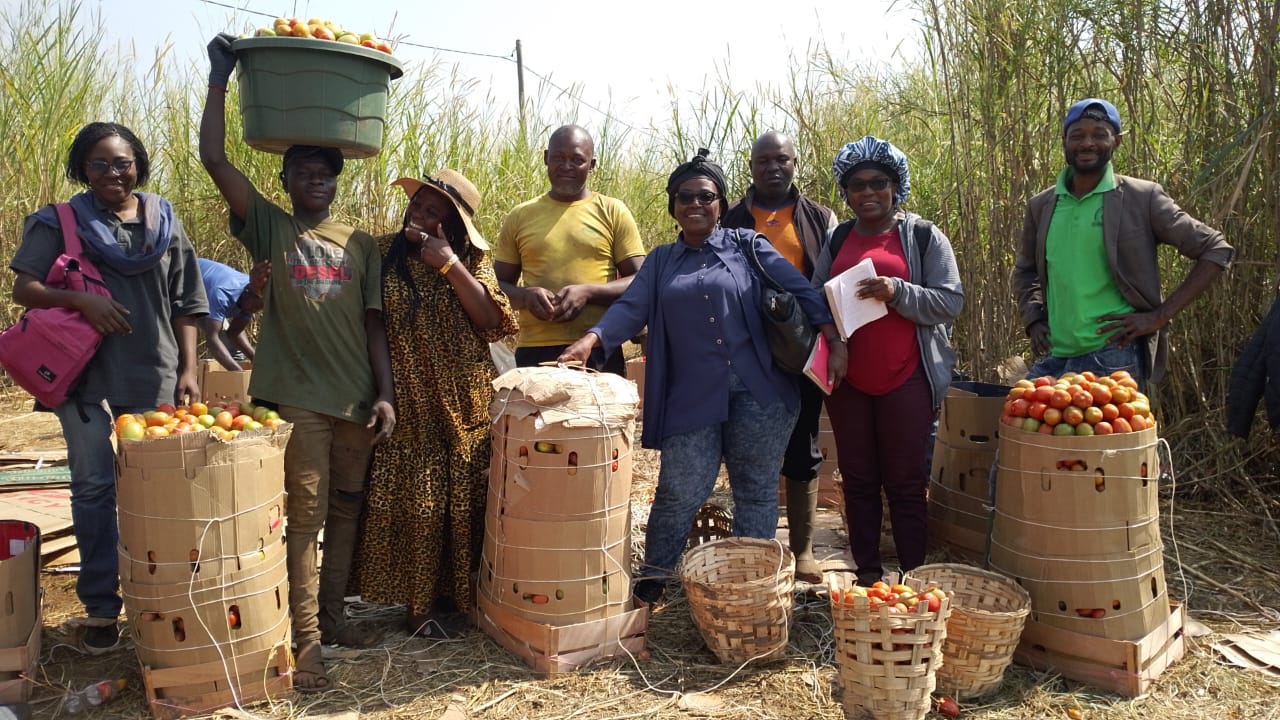
Advancing gender integration in climate policies and sustainable solutions through research in Central Africa
/

A regional workshop was held from February 13th to 15th, 2024, in Douala, Cameroon, as part of the PALM-TREEs project launch in Central Africa. Organized by the African Women’s Network for Sustainable Development (REFADD) in partnership with the University of Yaounde I, the event aimed to discuss climate extremes, involve stakeholders and key institutions in the Congo Basin region, particularly Cameroon and the DRC, and promote sustainable solutions while integrating a gender perspective into regional policies. The workshop brought together researchers, experts, decision-makers, and representatives from civil society in Central Africa.
The specific objectives of the workshop were to discuss the guidelines of the PALM-TREEs project, develop a nuanced understanding of the differential impacts of climate extremes based on gender and other social identities, characterize climate extremes based on local experiences, promote a transdisciplinary and co-development approach, create knowledge exchange networks, and develop strategies to influence policies and practices regarding climate risks.
During the workshop, participants formulated key recommendations to enhance resilience to climate change in the region. Firstly, they emphasized the importance of considering gender dimensions in regional climate-related policies and strategies. This entails integrating a gender perspective into the planning, implementation, and evaluation of climate actions to ensure equitable participation of women and men and address the specific needs of each group. In addition to gender integration, participants recommended initiating communication and awareness-raising processes to inform the general public about ongoing climate actions in the region. Public and policymakers awareness is crucial for fostering engagement and support for climate change mitigation measures, highlighting the social, economic, and environmental benefits of these actions.
Another important point raised during the workshop was the collaboration with academics specialized in gender sensitivity. Participants stressed the significance of collaboration between academics and civil society actors to strengthen knowledge and research on gender and climate change issues. By incorporating specialized academic perspectives on gender sensitivity, it will be possible to develop more effective policies and programs based on solid evidence and addressing the real needs of communities.
Lastly, participants emphasized the importance of establishing mechanisms for collecting and sharing information on ongoing climate actions and involving civil society partners in evaluations. This will enable a better assessment of the effectiveness of implemented measures and identification of improvement opportunities. Furthermore, civil society participation will ensure inclusive decision-making and better ownership of climate actions by communities.
In summary, this regional workshop highlighted the importance of gender integration in climate policies, public awareness, collaboration with specialized academics, researchers and civil society participation in enhancing resilience to climate change in Central Africa. These recommendations provide a solid foundation for promoting sustainable, equitable, and inclusive solutions to address current and future climate challenges in the region.
The participants were driven by a sense of hope and strengthened determination to tackle the region’s climate challenges and promote sustainable solutions. The PALM-TREEs project and this regional workshop foster research and collective action to address climate extremes, contributing to a more sustainable and equitable future for all in Central Africa.

Categories
CLARE Themes
CLARE Topics
Published
CLARE Projects
CLARE Partners

